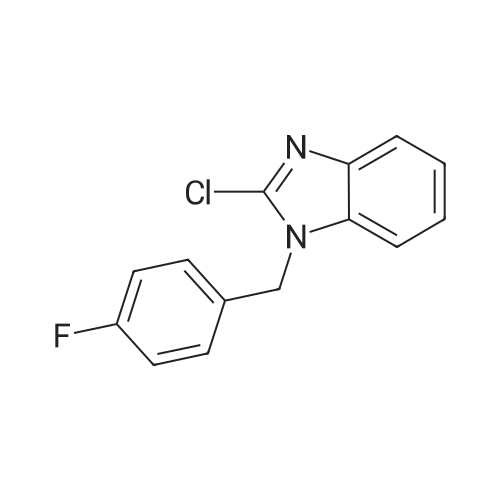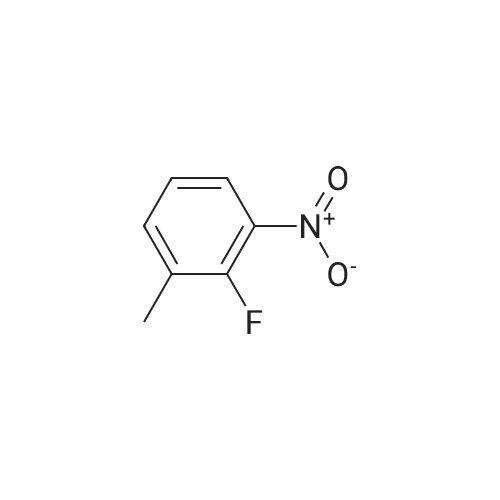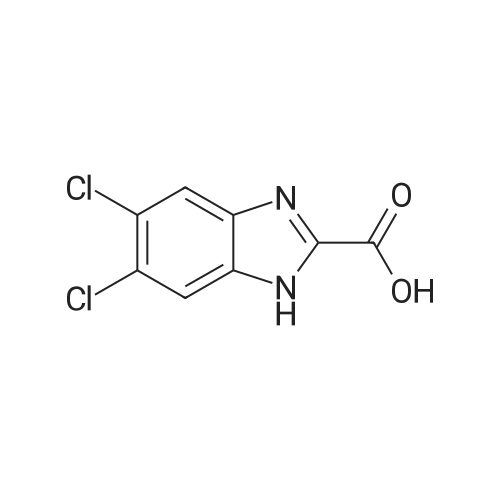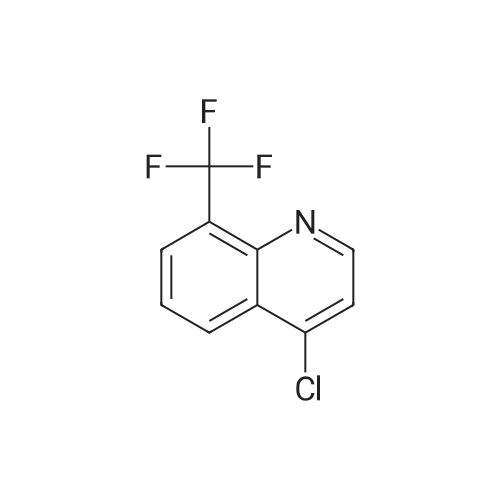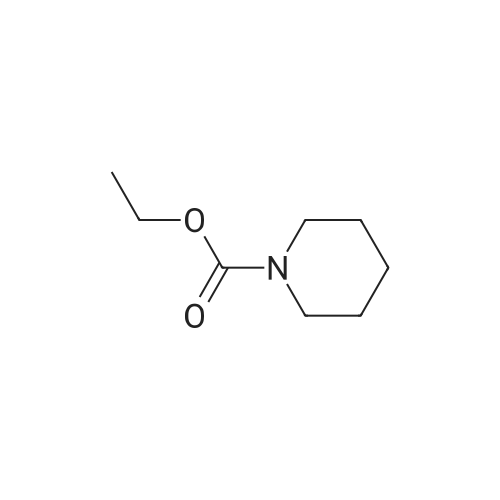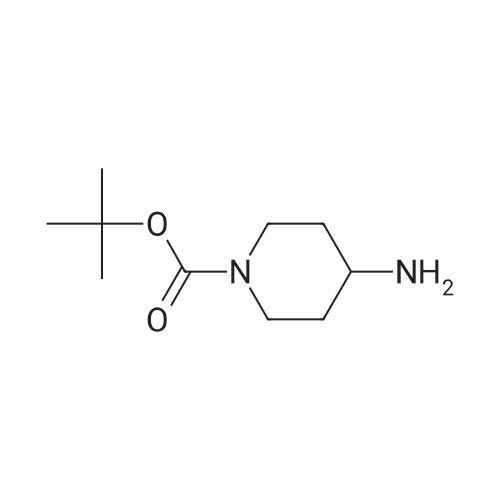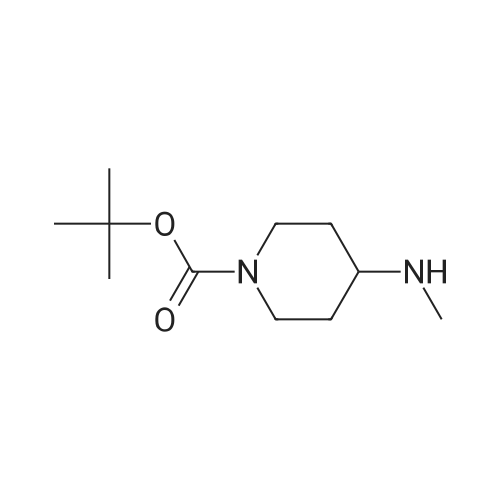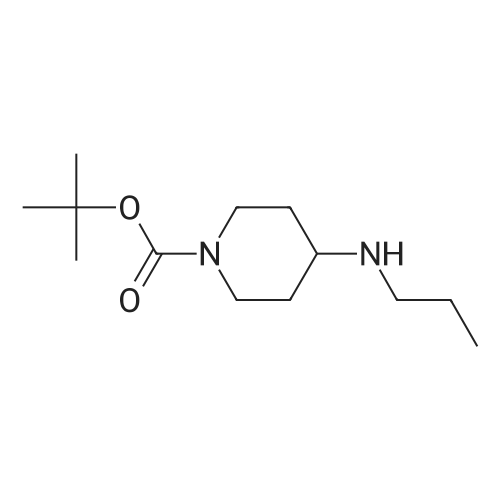| 45% |
In N,N-dimethyl acetamide; at 155℃; for 68h;Inert atmosphere; |
Compound 3 (0.38 mmol, 100 mg) was dissolved in dimethylacetamide (3 mL), followed by addition of ethyl 4-aminopiperidinecarboxylate (3.8 mmol, 0.65 mL). The reaction mixture was stirred at 155 C in a silicone oil bath for 68 hours and then cooled to room temperature. The reaction mixture was then diluted with ethyl acetate and poured into a 50% saturated brine solution and then extracted with dichioromethane. The crude product was purified by column chromatography on silica gel (hexnne/ethyl acetate; 10:90) to afford Compound 4 (69.5 mg, 45%) as a yellow solid. [00124] 1H NMR (500 MHz, Methanol-d4 σ 7.35 - 7.26 (m, 1 H), 7.15 - 7.09 (m, 2H), 7.06 - 6.98 (m, 4H), 6.93 (ddd, J = 8.1 , 7.3, 1 .1 Hz, 1 H), 5.22 (s, 2H), 4.10 (qd, J = 7.0, 4.0 Hz, 4H), 3.95 (it, J = 11.0, 4.0 Hz, 2H), 2.98 (s, 1 H), 2.10 - 1.98 (m, 2H), 1.45 (dd, J = 11.9, 4.2 Hz, 2H), 1.24 (td, J = 7.1 , 3.3 Hz, 3H). 13C NMR (126 MHz, Methanol-d4) σ 163.56 (d, J = 244.6 Hz), 157.19, 155.18, 142.92, 135.30, 133.75, 129.56, 122.50, 120.86, 116.52, 116.35, 116.08, 109.13, 62.70, 51.43, 45.24, 44.10, 33.11 , 14.96. IR (neat): 3275, 1694, 1220 cm'1, m/z: [(M+H)+ ] calcd for (C22H26FNO2) 397.2040; Found 397.2070. mp 120-123 C. |
| 45% |
In N,N-dimethyl acetamide; at 155℃; for 68h;Inert atmosphere; |
Compound 3 (0.38 mmol, 100 mg) was dissolved in dimethylacetamide (3 mL), followed by addition of ethyl 4-aminopiperidinecarboxylate (3.8 mmol, 0.65 mL). The reaction mixture was stirred at 155 C in a silicone oil bath for 68 hours and then cooled to room temperature. The reaction mixture was then diluted with ethyl acetate and poured into a 50% saturated brine solution and then extracted with dichioromethane. The crude product was purified by column chromatography on silica gel (hexnne/ethyl acetate; 10:90) to afford Compound 4 (69.5 mg, 45%) as a yellow solid. [00124] 1H NMR (500 MHz, Methanol-d4 σ 7.35 - 7.26 (m, 1 H), 7.15 - 7.09 (m, 2H), 7.06 - 6.98 (m, 4H), 6.93 (ddd, J = 8.1 , 7.3, 1 .1 Hz, 1 H), 5.22 (s, 2H), 4.10 (qd, J = 7.0, 4.0 Hz, 4H), 3.95 (it, J = 11.0, 4.0 Hz, 2H), 2.98 (s, 1 H), 2.10 - 1.98 (m, 2H), 1.45 (dd, J = 11.9, 4.2 Hz, 2H), 1.24 (td, J = 7.1 , 3.3 Hz, 3H). 13C NMR (126 MHz, Methanol-d4) σ 163.56 (d, J = 244.6 Hz), 157.19, 155.18, 142.92, 135.30, 133.75, 129.56, 122.50, 120.86, 116.52, 116.35, 116.08, 109.13, 62.70, 51.43, 45.24, 44.10, 33.11 , 14.96. IR (neat): 3275, 1694, 1220 cm'1, m/z: [(M+H)+ ] calcd for (C22H26FNO2) 397.2040; Found 397.2070. mp 120-123 C. |
| 34% |
at 180℃; for 0.0166667h;Microwave irradiation; |
A mixture of intermediate 1(. 5 g, 1.9 mmol) and 4-amino-1-ethoxycarbonylpiperidine as a colorless oil (0.495 g, 2.8 mmol) was added to the microwave tube, stirred uniformly, microwave 180 C reaction 1min, cooled to room temperature, reddish brown solid, with methanol 15mL and dichloromethane 5mL dissolved after mixing, the column was purified to obtain a white solid, The yield was 34.0% |

 Chemistry
Chemistry
 Pharmaceutical Intermediates
Pharmaceutical Intermediates
 Inhibitors/Agonists
Inhibitors/Agonists
 Material Science
Material Science















 For Research Only
For Research Only
 120K+ Compounds
120K+ Compounds
 Competitive Price
Competitive Price
 1-2 Day Shipping
1-2 Day Shipping





